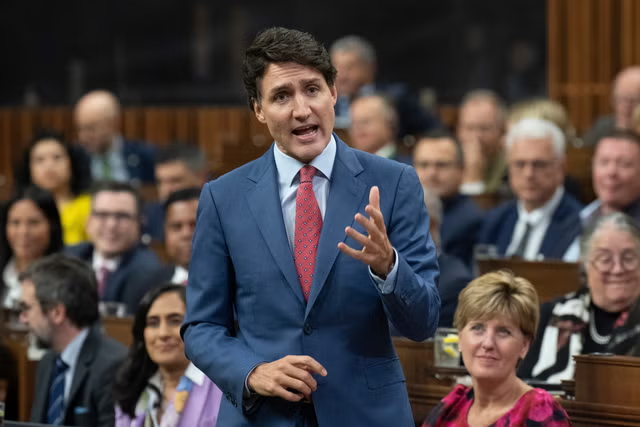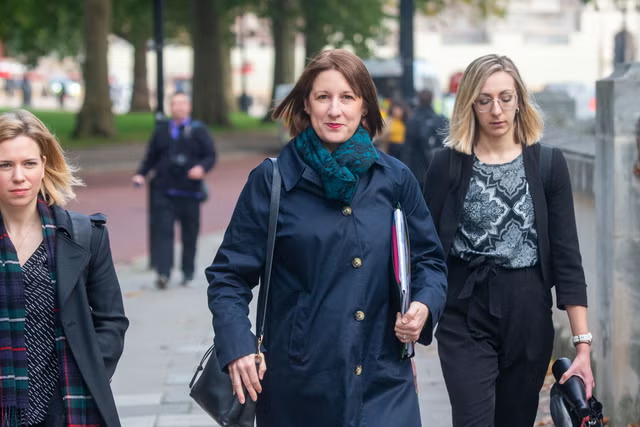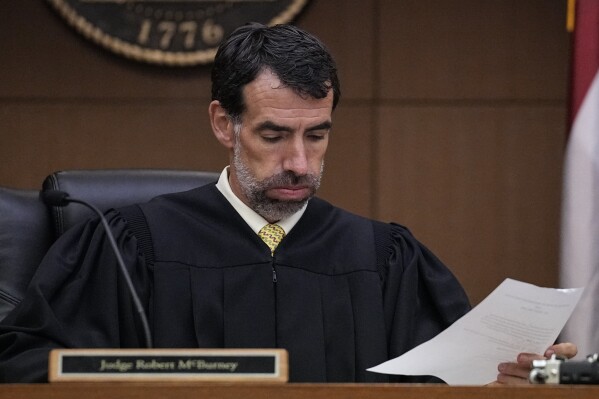 ✕
Close
✕
Close
Your support helps us to tell the story
Support NowThis election is still a dead heat, according to most polls. In a fight with such wafer-thin margins, we need reporters on the ground talking to the people Trump and Harris are courting. Your support allows us to keep sending journalists to the story.
The Independent is trusted by 27 million Americans from across the entire political spectrum every month. Unlike many other quality news outlets, we choose not to lock you out of our reporting and analysis with paywalls. But quality journalism must still be paid for.
Help us keep bring these critical stories to light. Your support makes all the difference.
Rachel Reeves will announce Labour’s first Budget since coming into power on 30 October, leading one of the most anticipated fiscal events in over two decades.
Ahead of her announcement, the chancellor has said “taxes will need to rise” in her starkest warning to the public yet. Writing in the Financial Times, the chancellor added that this will come alongside “tough decisions on spending and welfare.”
Ms Reeves also strongly hints that she will be revising Labour’s fiscal rule around debt, unlocking a potential £57bn for investment, writing that the rule “will make space for increased investment in the fabric of our economy”.
Meanwhile, Sir Keir Starmer is attending the Commonwealth Heads of Government Meeting (Chogm) in Samoa, where he has issued a strong rallying call regarding the upcoming fiscal event.
“We are going to tackle the inheritance in this Budget,” he said, adding: “I’m not prepared to walk past it.
We’ll be bringing you all the latest updates ahead of the big event on 30 October here, on The Independent’s liveblog.
Key Points
- Streeting refuses to rule out income tax threshold freeze
- When is the 2024 Budget and what might be in it?
- Government will keep manifesto pledges, says Starmer
Rachel Reeves to turn on spending taps with Budget boost for infrastructure and clean energy
Rachel Reeves will turn on the spending taps to upgrade Britain’s creaking infrastructure and invest in the clean energy transition, she will tell world leaders today.
The chancellor is planning to change the government’s fiscal rules to free up billions of pounds of borrowing, which she will promise to spend laying “the foundations of future growth”.
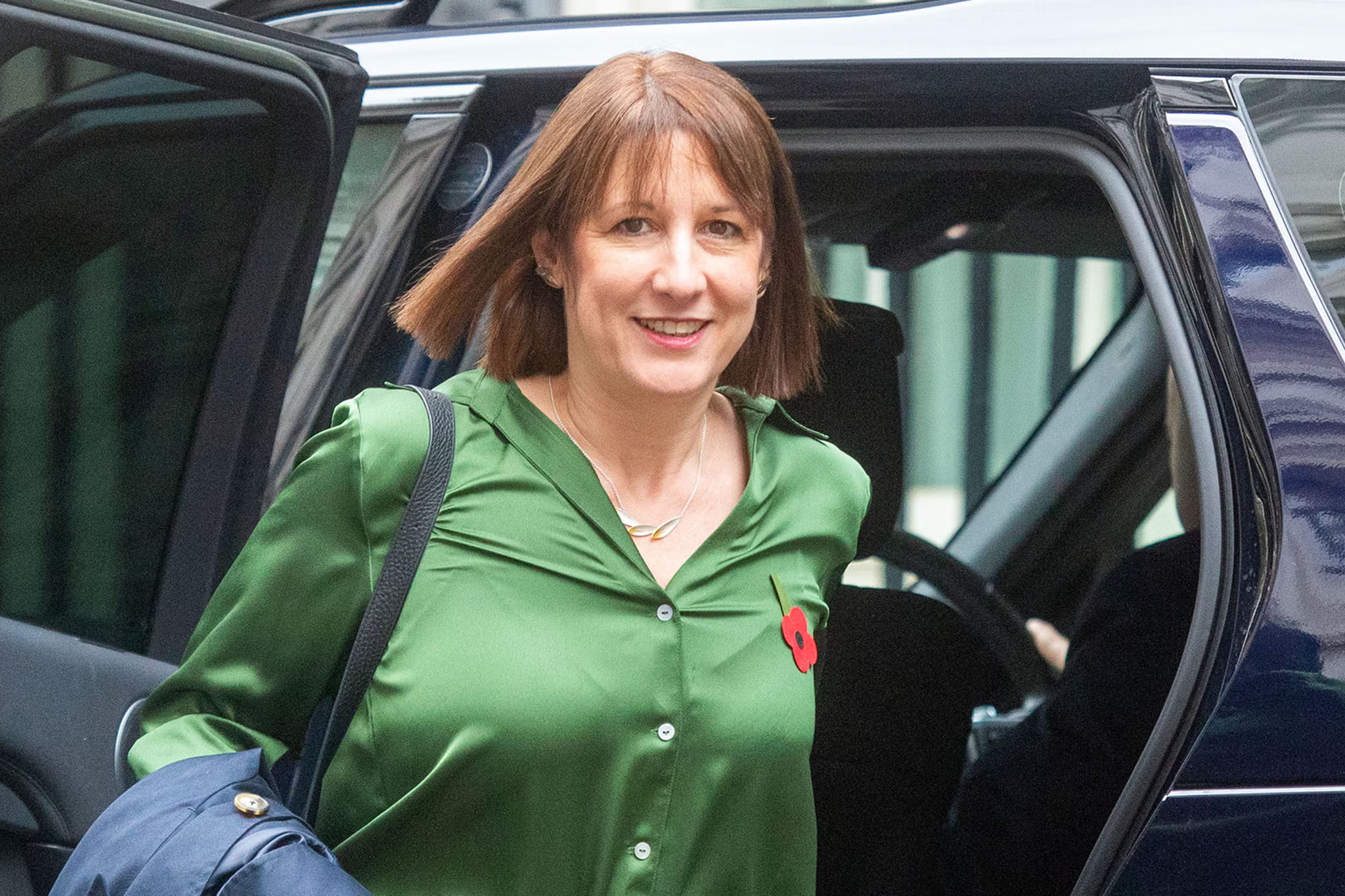
Rachel Reeves to turn on spending taps with Budget boost for infrastructure
The chancellor is planning to change the government’s fiscal rules to free up billions of pounds of borrowing, which she will promise to spend laying ‘the foundations of future growth’
Archie Mitchell24 October 2024 18:00 1729781723“Taxes will need to rise”: Reeves pens letter ahead of Budget
The chancellor has published an article for the Financial Times where she discusses her fiscal rules. It’s the strongest hint yet that she will be revising Labour’s rule around debt on 30 October:
“My fiscal rules will do two things. The first and most important: my stability rule will mean that day-to-day spending will be matched by revenues.
“Given the state of the public finances and the need to invest in our public services, this rule will bite hardest. Alongside tough decisions on spending and welfare, that means taxes will need to rise to ensure this rule is met. I will always protect working people when I make these choices, while taking a balanced approach.
“Crucially, my stability rule will also cover the interest on our national debt and unlike the previous government I won’t cut capital budgets to make up for shortfalls in the day-to-day running costs of departments.
“My second fiscal rule, the investment rule, will get debt falling as a proportion of our economy. That will make space for increased investment in the fabric of our economy, and ensure we don’t see the falls in public sector investment that were planned under the last government.
“We will invest alongside business, through expert bodies like the National Wealth Fund, multiplying the impact of public money. And I will invest wisely — we won’t just increase investment, we will also invest differently. We won’t repeat the costly mistakes of the past.”
Albert Toth24 October 2024 15:55 1729775972Starmer discusses Budget in Samoa
Speaking while travelling to Samoa for a meeting of Commonwealth leaders, Sir Keir addressed Labour’s inheritance from the Conservatives head on, saying: “I am not prepared to walk past it.”
“Obviously there are other Budgets to come but this is a significant one which will set the approach, the framework if you like, and it will give a sense of how we intend to do business.
“We are going to tackle the inheritance in this Budget.
“I’m not prepared to walk past it. I’m not prepared to put it off and that is a signal of the way I want to do business which is not to pretend our problems aren’t there, it’s to actually roll up our sleeves and deal with it.”
Albert Toth24 October 2024 14:19 1729765853Budget will ‘face up’ to black hole in public finances, Keir Starmer vows
Sir Keir Starmer has said the Budget will “face up” to the reality of Labour’s inheritance from the Conservatives as Rachel Reeves prepares to borrow tens of billions of pounds to invest in Britain’s crumbling infrastructure.
Ahead of the party’s first Budget in 15 years, the prime minister promised to tackle the hole left in Britain’s public finances and give the public “a sense of how we intend to do business” going forward.

Budget will ‘face up’ to black hole in public finances, Keir Starmer vows
Rachel Reeves’ Budget is expected to be a mixed bag, with deep spending cuts and sharp tax rises offset by a debt-funded spending spree of tens of billions
Archie Mitchell24 October 2024 11:30 1729761217How could a change to debt rules ‘unlock’ £50bn for Labour?
Rachel Reeves will reportedly unveil a major change to Labour’s fiscal rules at the budget on 30 October by borrowing billions for infrastructure investment.
Following weeks of speculation, the chancellor will reveal her plans to change Britain’s debt rules at the International Monetary Fund’s (IMF) annual meeting in Washington on 24 October.
There’s a few ways she could do this – here’s everything you need to know:
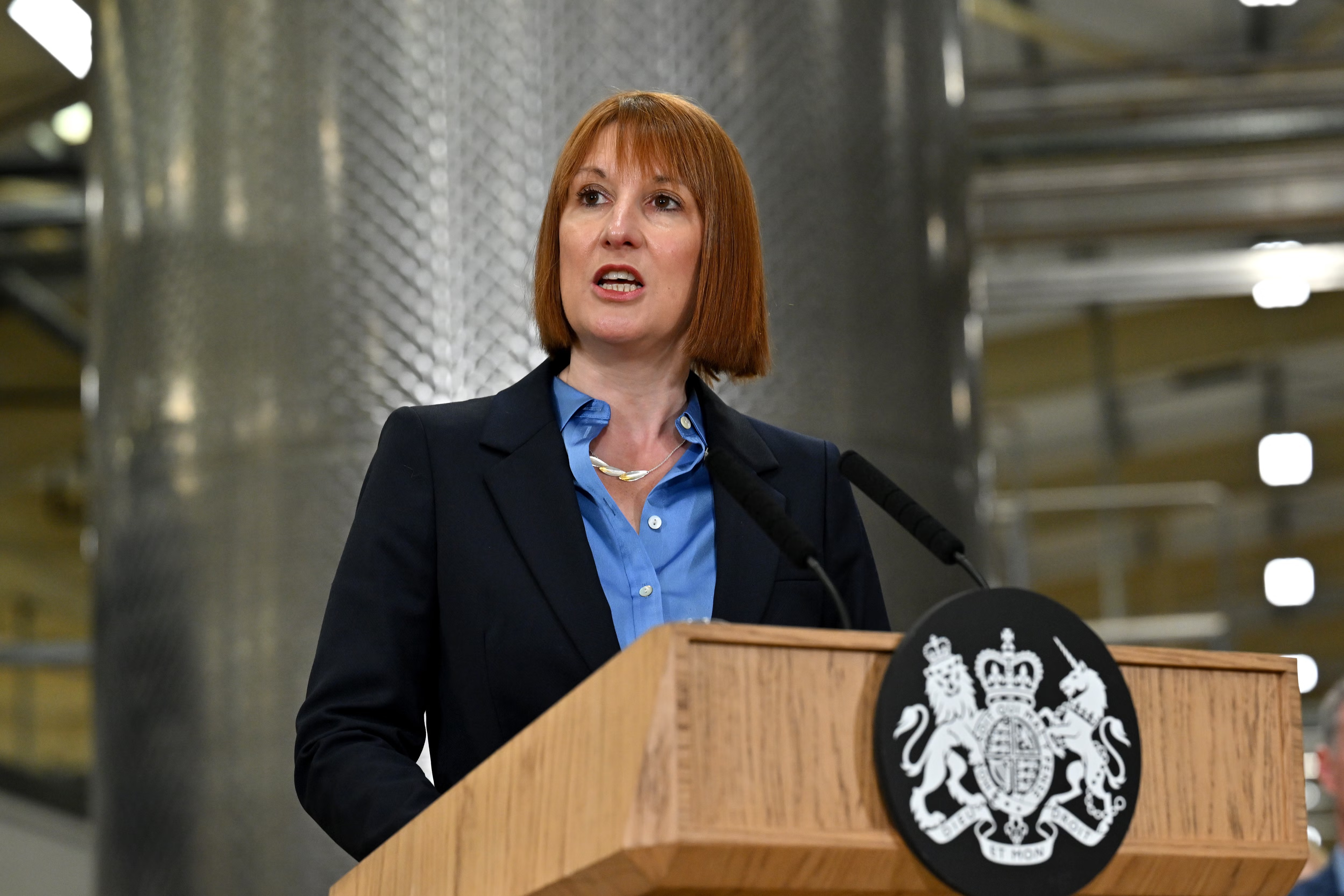
How Reeves might unlock £57 billion at the budget in ‘simple’ fiscal rule change
Experts have urged the chancellor to consider tweaking a Labour manifesto pledge
Albert Toth24 October 2024 10:13 1729759942Reeves confirms disposable vape ban as new taxes still on the cards
The sale of disposable vapes will be banned in England and Wales from next year.
Under legislation laid out by the Labour government in Parliament, it will be illegal for retailers to sell the devices from 1 June 2025.
It has been reported that Rachel Reeves is also considering raising the tax further as part of her Budget to be unveiled at the end of the month.
Labour has already outlined its ambition to reduce the amount of young people smoking or vaping, bringing in new rules as part of the Tobacco and Vapes Bill.

Labour’s war on vaping explained: From disposable ban to higher taxes
Disposable vapes will be banned from sale in England and Wales from 1 June, 2025 - as Labour reportedly considers increasing a incoming tax on vaping products
Albert Toth24 October 2024 09:52 1729749600ICYMI: Reeves considers ‘Amazon tax’ in business rates reform drive
The chancellor is reportedly considering a new ‘Amazon tax’ that would see business rates paid my online tech giants increased.
Industry sources understand that a consultation will be launched after Ms Reeves announces the Budget on 30 October. This means the plans may get a mention.
It comes after Labour wrote in its manifesto that it would reform the business rates system to “level the playing field between the high street and online giants.”
The manifesto added that the current system “disincentivises investment, creates uncertainty and places an undue burden on our high streets.”
Albert Toth24 October 2024 07:00 1729738800Budget rumours: Inheritance Tax reform
Inheritance tax is a levy on the estate of someone who has died. This is their property, money and possessions. Crucially, it is not paid if the value of these things is below £325,000.
The tax rate is 40 per cent, but it’s only charged on the part of the estate that’s above the threshold. In 2023/24, only 5 per cent of deaths generated an inheritance tax bill, raising around £7 billion.
However, the IFS writes that the tax measure “is littered with special exemptions”. These include a business relief, the ability to pass on agricultural land tax-free, and the tax-free passing on of pension pots.
The economic think tank says that ending these measures alone would raise £4.8bn a year by 2029.
Albert Toth24 October 2024 04:00 1729728000ICYMI: Rachel Reeves boosted by big drop in inflation as she seeks £40bn in Budget tax rises
Rachel Reeves has been boosted by a sharp drop in inflation as she seeks to find £40bn of tax hikes and spending cuts in this month’s Budget.
The chancellor will welcome the dip, which saw inflation fall under the Bank of England’s 2 per cent target for the first time in more than three years, as she prepares for what promises to be a brutal Budget.

Rachel Reeves boosted by big drop in inflation as she seeks £40bn in Budget tax rises
The fall in inflation comes as Rachel Reeves looks for £40bn of spending cuts and tax hikes in the October 30 Budget
Albert Toth24 October 2024 01:00 1729717200Budget rumours: Taxing pension savings
Pension tax relief is a reduction of the amount of tax paid on private pensions. It helps workers save for retirement by boosting their pension pots.
The amount of tax relief a person is granted is based on their income tax. It will effectively cancel out tax on pension contributions up to a maximum of £60,000.
After this, contributions will be taxed at either 20, 40, or 45 per cent, depending on which income tax rate the worker falls into.
However, the chancellor is thought to be considering a flat 30 per cent pension tax relief rate. This would mean that higher earners would effectively pay 10 per cent in tax, while those on the additional rate would pay 15.
The measure would raise around £3 billion a year, with 7 million earners paying more tax. But it would be better news for basic rate earners, who would actually begin to receive a 10 per cent boost to their pension contributions.
Evaluating the idea last year, the IFS said it would “redistribute the burden of taxation from the bottom 80 per cent to the top 20 per cent of earners.”
Albert Toth23 October 2024 22:00 Newer1 / 5OlderDisclaimer: The copyright of this article belongs to the original author. Reposting this article is solely for the purpose of information dissemination and does not constitute any investment advice. If there is any infringement, please contact us immediately. We will make corrections or deletions as necessary. Thank you.
